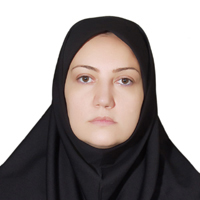Investigating the current and desirable situation of the education system in sustainable development with the approach of the Islamic-Iranian model of progress
This study aimed to investigate the current and favorable situation of the education system in sustainable development with the approach of the Islamic-Iranian model of progress. The statistical population in the qualitative section included ten specialists in the education system who were purposefully selected by a series of snowballs. In a small part, the managers, responsible experts, and experts of the General Department of Education of Tehran were 440 people, and the sample size according to Cochran's formula was 205 people. Sampling was done by stratified random sampling according to the organizational position. The data collection tool was a semi-structured interview in the qualitative part and a researcher-made questionnaire in the quantitative part. Data analysis was performed using Wilcoxon and correlated t-test. The qualitative part of the study showed that the factors affecting sustainable development in the education system with the Islamic-Iranian model of progress included six dimensions and 45 components. In the quantitative part, the study of the difference between the current and favorable situation in the six main variables (cultural, social, environmental, economic, educational methods, and the document of fundamental change in education) has been significant and numerous. The cultural dimension, the environment, and the document of fundamental change were in a better position than other dimensions. Therefore, in order to move from the current situation to the desired situation of sustainable development, the education system must pay special attention to teaching social, economic, and educational methods affecting sustainable development with the Islamic-Iranian model approach.
-
The Ethical Model of The Future University with Knowledge-Enhancing
Homira Amini, *, Kayomars Niaz Azari
Journal of Ethics in Scince and Technology, -
Identifying and ranking the strategies and consequences of Farhansaz University with emphasis on sustainable development
Tarane Enayati *, Maedeh Beykzadeh, Mahsa Gholamhosiennzadeh
Journal of Curriculum Development and Educational Planning Research, -
Analysis of the Dimensions and Components of Performance-Based Management in the Ministry of Interior
Parviz Ghasemi, Saeed Sayad Shirkash *,
Journal of Dynamic Management and Business Analysis, -
A Comparative Study of Leadership Style in Islamic Azad Universities of Iran and Canadian Universities
Narges Khatun Hosseini, *, Kiyomarth Niaz Azari
Iranian Journal of Comparative Education, Spring 2024



